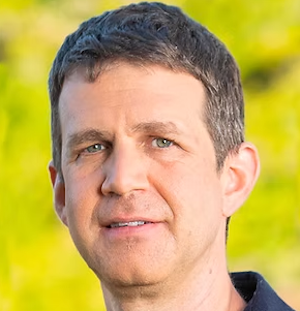Elections
Council Elections
Members of SNE are invited to participate in the election process for your Council.
The Council is the highest governing body of the Society, with ultimate responsibility for its conference program and scheduling, public communications, financial administration, and the election of the Society’s officers. Each year, three new council members are chosen from a slate of nominees suggested by the Nomination Committee (current president, president-elect and past president) and voted on by the general membership to serve a three-year term.
Three seats are open for elections.
Members are asked to cast three votes each:
- One for a nominee from list (A): Neuroscience / Psychology / Cognitive Neuroscience cluster
- One for a nominee from list (B): Economics / Finance / Business cluster
- One unrestricted vote from among the entire list of nominees (that you have not voted for yet) in either of the above two categories (A-B).
The three nominees receiving the highest total number of votes will be elected for the three-year term.
2025 Election process timelines are as follows:
- Voting for board elections open: September 4, 2025
- Voting for board elections close: September 18, 2025
If you have an active membership, you will receive a Survey Monkey link to cast your vote. Please keep an eye on your spam filter. If you have not received this link by September 5th, 2025, please email .
2025 Candidates
(listed alphabetically by last name)
NEUROSCIENCE / PSYCHOLOGY / COGNITIVE NEUROSCIENCE

Romy Frömer
University of Birmingham
Romy Frömer is an Assistant Professor of Psychology at the University of Birmingham and affiliated with the Centre for Human Brain Health, both of which she joined in 2023. Her “Adaptive Control of Cognition and Behaviour Lab” studies cognitive, computational and neural mechanisms of flexible learning and decision-making. Her research is funded by the National Science Foundation and the Academy for Medical Sciences. Romy completed her undergraduate and graduate degrees at Humboldt-Universität zu Berlin, studying the neural bases of learning and cognitive control in the motor domain using EEG and Wii-supported virtual throwing tasks in collaboration with the Cognitive Robotics lab. Following a one-year postdoc with Professor Abdel Rahman at Humboldt-Universität zu Berlin, investigating how knowledge shapes perceptual decisions, she worked with Amitai Shenhav at Brown University as a Postdoctoral Fellow and subsequently Senior Research Associate. At Brown, Romy researched the neural and computational mechanisms by which value-based choices are controlled, including the role of goals, attention, and metacognition, as well as decisions about control. Her research uses behavioral experimentation, computational modelling, EEG, fMRI, and eye-tracking to study control of learning and decision-making in healthy adults, across the life span, and in clinical populations, e.g., people with Parkinsons. She has been an SNE member since 2018.

Shabnam Hakimi
Toyota Research Institute
Shabnam Hakimi is a Senior Research Scientist in Human-Centered AI at the Toyota Research Institute. Her work is at the intersection of behavioral science and AI, combining both theory- and data-driven approaches to investigate new ways to support creativity and innovation. Shabnam’s current research focuses on two areas: development of 1) novel approaches to measuring consumer preferences and better forecasting future preferences, especially for innovative products; and 2) neuroscience-based AI interventions that support flexible, creative decision making. Shabnam’s work draws upon a history of interdisciplinary collaboration and team science, bringing together diverse perspectives to address knowledge gaps about motivated decision making that impact both individuals and organizations. Her research is further enriched by research experiences in academia, government, and industry; these perspectives inform her approach to translational research and how new discoveries can be quickly and effectively applied at scale. Shabnam has worked to make boundaries between academia, government, and industry more porous, actively seeking opportunities to increase collaboration and knowledge sharing between often siloed institutions. More broadly, she is passionate about and has led initiatives to promote inclusive, equitable access to knowledge, especially for early-career researchers as they navigate career transitions in an increasingly uncertain world. Shabnam hopes to work with the Society for Neuroeconomics to develop mentorship and collaboration resources for the community that support career development and placement, thereby extending the reach of the neuroeconomics community and amplifying its impact. Shabnam earned a Ph.D. in Computation and Neural Systems from Caltech and a B.A. in Psychology from Stanford University.

Tom Schonberg
Tel Aviv University
Tom Schonberg is a Professor of Neurobiology at Tel Aviv University. His research focuses on the neural and physiological mechanisms of value-based decision making. Over the years, he has examined multiple facets of this domain, including the human reward system through reinforcement learning models, risky decision-making, behavioral change interventions, and the process of value construction. His laboratory integrates converging methods such as functional and structural MRI, eye-tracking, and computational modeling. More recently, his team has adopted smartphone applications, sports wearables and virtual reality to collect rich physiological signals and explore decision-making in naturalistic contexts. Tom has been awarded two ERC grants (StG and CoG) and is deeply committed to advancing open, transparent, and reproducible scientific practices. His lab led the international NARPS project, published in Nature (2020), which engaged the neuroeconomics community in a large-scale examination of variability in fMRI analysis and prediction markets of the mixed-gambles task. With an interdisciplinary training background, Tom fosters collaboration and innovation both within his laboratory and across the field. He attended the first Neuroeconomics Summer School at Stanford in 2006 and has actively participated in SNE meetings since 2013. As a prospective board member, he is eager to serve the society by promoting rigorous and reproducible research practices, supporting interdisciplinary dialogue, and encouraging the adoption of new tools to address core scientific questions in neuroeconomics.
ECONOMICS/FINANCE/BUSINESS

Fadong Chen
Zhejiang University
Fadong Chen is a Professor at the School of Management, Zhejiang University. His research lies at the intersection of economics, psychology, and neuroscience, focusing on the cognitive mechanisms underlying risk, time, and social decision-making, as well as applications in behavioral operations management. He combines behavioral experiments, computational modeling, and process-tracing techniques—including response times, mouse-tracking, and eye-tracking—to reveal how decisions unfold in real time.Fadong has made significant contributions to the development and application of sequential sampling models in social and intertemporal contexts. His work introduced the concept of attribute latency as a causal determinant of decision preferences, showing how the temporal order of processing influences choice behavior. In addition, he has proposed using the starting point of sequential sampling models to capture intuition, providing an integrative framework that bridges dual-process theories with sequential sampling approaches. Together, these contributions have offered new perspectives on the micro-cognitive foundations of decision-making. His research has appeared in Nature Communications, Management Science, Manufacturing & Service Operations Management, Experimental Economics, and Journal of Business Ethics, among others. Beyond his academic publications, Fadong actively promotes the field of neuroeconomics in Asia. He has organized the International Conference on Neuroeconomics and Neuromanagement (ICNN) and the International Workshop on Brain and Managerial Decision Making, fostering interdisciplinary collaboration across neuroscience, economics, and management. Through his research, teaching, and community service, Fadong is committed to advancing the global reach and impact of neuroeconomics.

Alex Genevsky
Erasmus University
I am an Associate Professor of Marketing and Consumer Neuroscience at the Rotterdam School of Management, Erasmus University. I received a Ph.D. in psychology and affective neuroscience from Stanford University, focused on exploring how emotions and cognition interact to shape human decisions. My research combines behavioral experimentation, market-level data analysis, and neuroimaging to investigate the drivers of preference and choice. A central theme of my work is the use of neural data to improve predictions of real-world behavior. I study how brain activity measured in the lab can forecast aggregate market-level outcomes more effectively than self-reports or behavioral measures alone. I apply an interdisciplinary approach, drawing from psychology, neuroscience, and marketing to address questions with real-world implications in economics, business, and public policy. The Society for Neuroeconomics has been instrumental in shaping my career. I first attended as a graduate student, and over the years my work has been shaped by the interdisciplinary research and collegial atmosphere fostered by the society. Over the past decade I have been an active and engaged SNE member, contributing regularly as a presenter, reviewer, and program committee member. Looking ahead, I welcome the opportunity to contribute further to the continued growth and success of SNE.

Zhihao Zhang
University of Virginia
Zhihao Zhang is an Assistant Professor of Business Administration in the Marketing area at the Darden School of Business, University of Virginia, and holds a courtesy appointment in the Department of Psychology. Trained in both consumer behavior and cognitive neuroscience, he pursues an interdisciplinary research agenda on consumer decision-making. His work examines the cognitive, computational, and neuroscientific mechanisms by which memory and knowledge-of brands, products, services, and social interactions-shape choices. He also explores how neuroscience can inform real-world issues at the intersection of marketing and law, such as trademark and copyright disputes. His research has been published in Proceedings of the National Academy of Sciences, Science Advances, Nature Communications, Current Biology, and Human Brain Mapping, and covered by outlets such as BBC News, Los Angeles Times, Fortune, Fast Company, and The Times of India. His work has also been featured in practitioner-focused venues including Ipsos Views, Law360, and World Trademark Review, and has received support from the National Institute on Aging. Before joining Darden, Zhihao was a postdoctoral scholar at the Haas School of Business, University of California, Berkeley. He earned his undergraduate degree from Tsinghua University (with honors) and his Ph.D. from Yale University’s Interdepartmental Neuroscience Program. As a prospective board member, Zhihao is committed to fostering a vibrant and inclusive community for the Society for Neuroeconomics-one that supports early-career scholars, strengthens interdisciplinary exchange, and pushes the boundaries of how we understand and improve the decisions that shape our lives.
SNE Leadership
Current elected leadership of Society for Neuroeconomics (SNE).
Membership
Become a SNE member and vote in our election.
